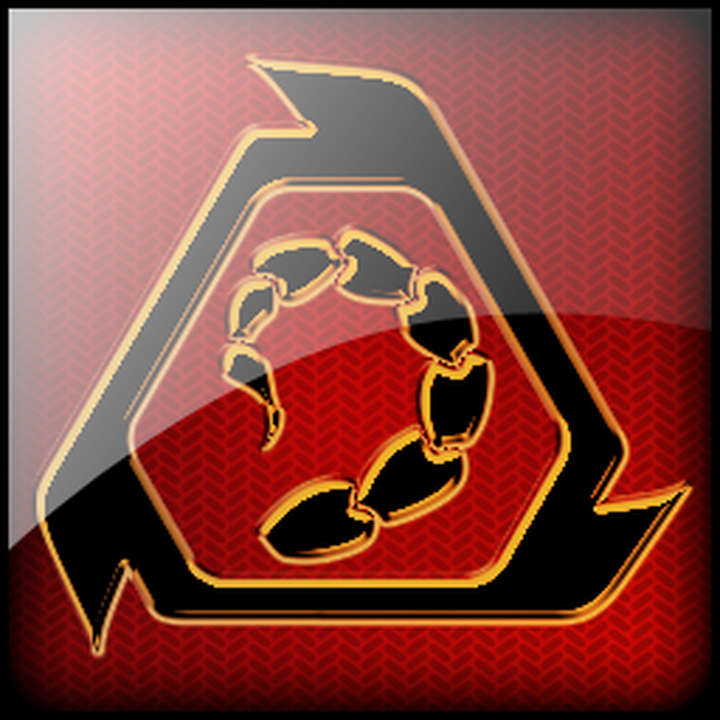Wait until you hear what the Danes do.
Why is “97” “7 + [-½+5] x 20” in Danish?
TIL that there’s actually (kinda but not really) a method to the madness that is our numbers 😄
Thanks for the link! While I was aware of the weird numbers in Danish, this gave a great explanation and I wish I had had this info when I was forced to learn French in school. The way this vigntisian system evolved is actually quite interesting and makes so much sense. Everything makes sense now. Wow.
I had to look this up. What the fuck? They came up with numbers up to 60 and then just said “eh, fuck it” and made 70 “sixty-ten”, 80 “four-twenties” and 90 “four twenties ten”.
The other way around. We started with base 20 everywhere then simplified some of it.
During medieval times it used to be :
10 Dix (10)
20 Vingt (20)
30 Vingt et dix (20+10)
40 Deux-vingt (2x20)
50 Deux-vingt et dix (2x20+10)
60 Trois-vingt (3x20)
70 Trois-vingt et dix (3x20+10)
80 Quatre-vingt (4x20)
90 Quatre-vingt et dix (4x20+10)Then they switched to base 10… But only up to 70 for some reasons in France. Belgium and Switzerland (and some parts of France) have gone all the way to 100 by using Septante (70), Octante or Huitante (80) and Nonante (90).
Belgians and Swiss being the premium version of France, once again. Seems like all the sensible French people packed up and left nonsense behind.
What a nice thing to say
The French earned it by continuing to use quatrevingt.
Wow, wait ! stop ! I can’t handle all this niceness !
And YOU KNOW WHAT?
Waffles > Crepes
WELL Quatre-quarts > Waffles HAH
In Switzerland, they use septante, huitante, and nonante for 70, 80, and 90, respectively. Much more sensical, imo.
In Belgium, they use “septante” and “nonante” too. 80 is still “quatre-vingt”.
We’re not that different with the teens. We effectively say “seven ten”, “eight ten”, “nine ten”. You don’t think of nineteen as “nine+ten”, it’s just its own number. Well, the French take that one step farther.
Maybe it’s the anglophone in me, but going 1 - 10 then 11,12 (3+10) - (9+10) then adopting a repeating pattern to infinity is more explainable than going 1-10 then 11-15 then a regular pattern for fifty numbers then getting freaky with that pattern up to 100, then keep that pattern until one thousand, then just repeat that pattern til infinity.
maybe it’s the man in a Turkish prison in me but going I,II,III,IIII and then crossing it through to make five is more explainable than going 1, 2…
This doesn’t apply to all french speaking regions. Switzerland use septante and nonante and in some regions of the country also huitante.
was gonna say props to Switzerland and Belgium for having proper numbers :) idk why we don’t switch
Probably because the cost of switching isn’t worth it. Same reasoning as the imperial system and driving on the left (barbaric, I know)
Welsh has a Vigesimal and Decimal counting system and both are used for different purposes. The decimal one is very logical eg ten, one ten one, one ten two… Two ten, two ten one etc etc
The Vigesimal system is different…
- Ten
- One on ten
- Two on ten
- Three on ten
- Four on ten
- Fifteen
- One on fifteen
- Two on fifteen
- Two nines
- Four on fifteen
- Twenty
Add to that that numbers can be gendered, mutate at the start or drop the end depending on a number of rules, or just randomly throw in an extra option eg 50 is “ten and two twenty” Vigesimal or “five ten” Decimal… but often you’d use “half hundred”…
My understanding is that this is surprisingly common, but has died out in many languages.
Normally I don’t support English imperialism, as the root of the majority of the modern world’s evils, BUT
English: What’s that?
German: “Was ist das?”
Dutch: “Wat is dat?”
Spanish: ¿Qué es eso?
French: “qu’est-ce-que c’est ?”What. the fuck?!
French-Québec : “Kossé ça?”
French also : “C’est quoi?”
… or : “Qu’est-ce?”Word for word of "qu’est-ce-que c’est ?” …
…goes like : "What’s this that this is?
…or : “What’s this which this is?”“Qu’est-ce?” sounds like the english “Case”.
Since this is just one syllable it might be difficult to hear out of context.
Edit : Delayed 8h because of DDOS attackI ended up replying to the original comment, but your translation to English made me realize that in Portuguese we commonly say “O que que é isso?” which is basically “qu’est-ce-que c’est?”
Agree. But you can say “C’est quoi ?” too. More “street language” but it’s okay
«Qu’est-ce que c’est que ce bordel ?»
Hahaha “C’est quoi cette merde ?”
In Portuguese we actually can say “O que é isso?”, basically the same as in Spanish, but I’d say I use more commonly “O que que é isso?”, which seems closer to French version. Funny, had never thought about it like that.
Portuguese is what happens when a Spaniard speaks French while hungover
And the French is pronounced keskecè. Half the letters are silent because why not
Although most French say “Qu’est-ce que c’est”, it is worthy to note that the proper/formal French is “Qu’est-ce?”. So strictly equivalent to “What is that”, word for word. :)
Then ask someone who hasn’t learnt French how many syllables there are in “qu’est-ce que c’est ?” And watch the look of horror on their face when you tell them it’s just 3.
… Four Twenties Ten Nine, Hundred
999? 199? What?
he meant 99, the French read it as 4x20+10+9
The “four twenties” might seems more familiar to americans by replacing “twenties” by “score” as in : " four score and seven years ago…"
Yeah, that’s weird too.
I’ve seen this coutless times, and as a french native I’m getting tired of this, I want to tell you that no french think of it that way.
You know how you have “eleven” “twelve” and then you switch to “xxteen” for the next 6 number ? You never dissociate them, because that’s just the way it is. French are the same “douze”, “treize”… and then suddenly “dix-sept” but nobody dissociate them, this is just one word that means “17”
And then it’s the same with “seventy”, french don’t dissociate 60 and 10 in their mind, it’s just one word. Sure from an ethymologic standpoint it comes from two word but it’s not how we think about it.
When you say “sunday” you never think “day of the sun”, when you say “blueberry”, “blackberry” you don’t think of the color, you think of the particular fruit, everybody can see the origin of the word, but nonetheless the word is one unit.
Anyway. Yes it is weird to learn a new language and see how it evolved into a weird mess, but please know that when you make this kind of comment you don’t look like you are well informed about the french language, you just look like kids that have learned a new word and can’t stop using it everywhere.
I want to tell you that no french think of it that way.
Of course not, that’s the point though. It is your first language, so for you that’s the norm. But for the rest of the world with another language that’s weird as fuck.
Nah, it’s weird, that dude’s just touchy.
There’s only one place a French native gets this wound up about a joke. Are you Parisian?
I am not, but I’ve seen this jokes so many times online…
It doesn’t matter, it’s just something every child learns by heart and doesn’t question. You don’t have to be offended by this post, it’s just funny
Not particularly offended, but just tired of seeing this jokes which I think is not really accurate, and it’s like an entry level joke about french language, there could be so many ways to make fun of french
Jokes aren’t meant to be accurate, don’t fret
nah, you guys are just weird.
Uh, French is my first language and I’ve definitely thought that four-twenty-ten-seven was a weird as fuck way to say ninety-seven since I was a kid.
I think it was around that time in my French class, with my teacher just without any comment expecting us to take that seriously, that I decided that’s not a language I wanted to deal with.
The other day I decided I would stop saying quatre-vingt-dix (4, 20, 10 = 90) instead I would say huit-dix-dix (8, 10, 10) or even deux-quarante-dix (2, 40, 10) and shit like that
to add some context i forgot about it an hour after
Why not use the existing septante, octante, neunante?
idk i was tired and i tought it was the funniest thing
confirming it’s funny
I’d actually be down for huitante, in order to keep the latin root like other numbers instead of the greek one
People are actually using huitante and not octante.
Regions use septante, huitante and neunante outside France and especially in Switzerland.
Ask the guys in Modern times who decided that fick it we will go for the nonsensical method.
Depends where though, Belgium and Swiss use septante…
Yes, they are the sensible players in this game
Neunante always struck me as a bit weird (although much better than the math thingy).
Neuvante would seem a more reasonable derivation from neuf.
Would also make it closer to other latin languages like Italian and Spanish.
In Portuguese is “Noventa” also
- Combien pour ma commande ?
- Alooors… Une bavette de trois livres et deux-cent trois vingt et douze grammes… Ca fera deux-vingt et sept euros et deux-vingt et cinq centimes s’il vous plait.
- Tenez, voici un billet de deux-vingt et dix tout neuf !
- Et voici votre monnaie, deux-vingt et quinze centimes et un comprimé d’aspirine.
- Merci bonne journée !
- De même !
With the exception of Eleven and Twelve, English is actually pretty good at this. You can say we should have three-ten, four-ten, five-ten, but it’s pretty close.
“seventeen, eighteen, nineteen… ten… ten ten”
On a similar note: In German, “seven hundred fifty three” would be said as “seven hundred three and fifty”.
At least it’s consistent - starting at “thirteen” , which is “three ten”, up to ninety nine, which is “nine and ninety”, the multiples of ten come last.
It is pretty annoying, though, when a number like 123’456’789 is spoken as 132-465-798, though.
Apparently, it’s because in old Germanic, the numbers were spoken “backwards” (one hundred twenty three being spoken as “three and twenty and hundred”), and we only partially reversed that.
Obligatory https://m.youtube.com/watch?v=9rmBqIFeHN8
Deutsch: 2andThirty
Much more regular than English where you have seven-teen but then seventy-one. To be consistent you’d need to switch to either teen-seven or one-seventy.
I’m okay with saying seven, ten-seven, twenty-seven, etc…











